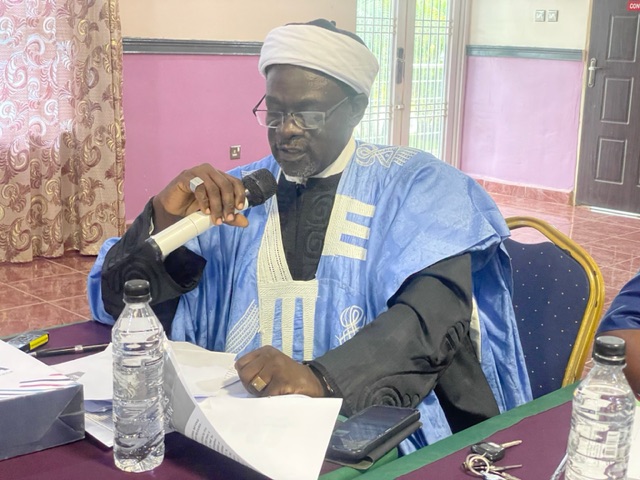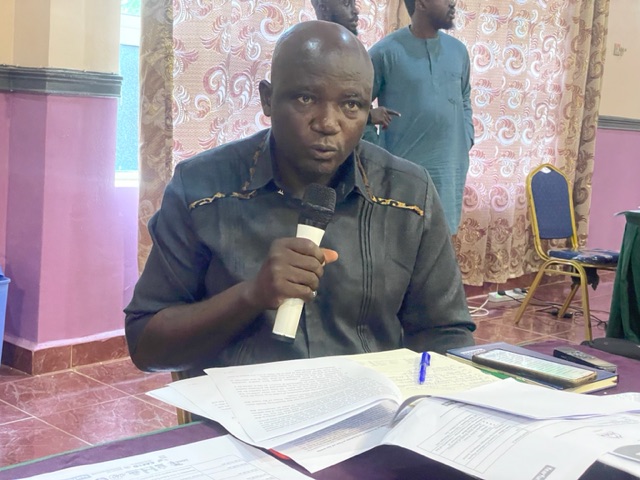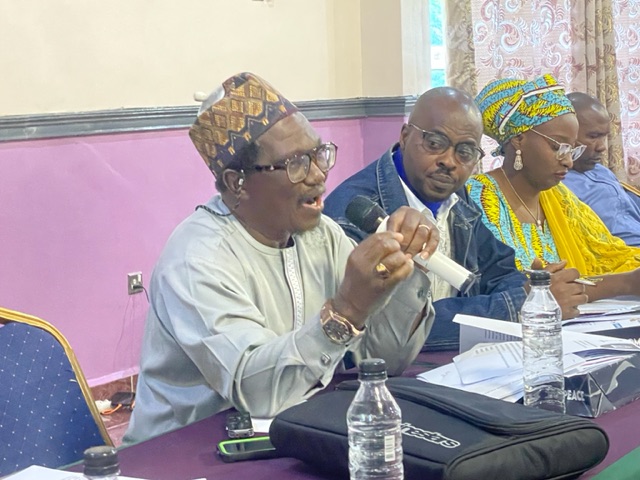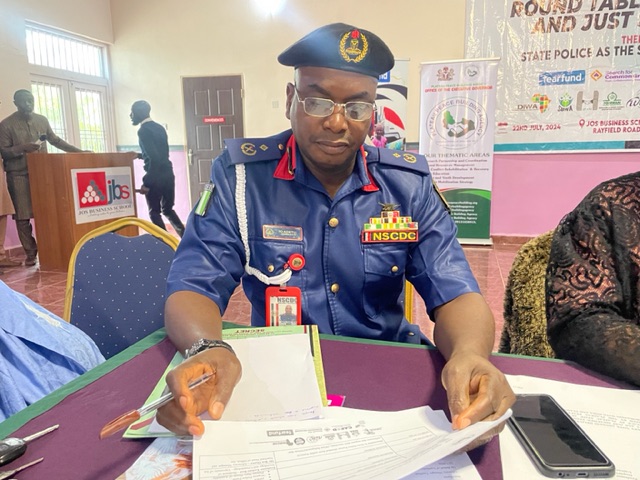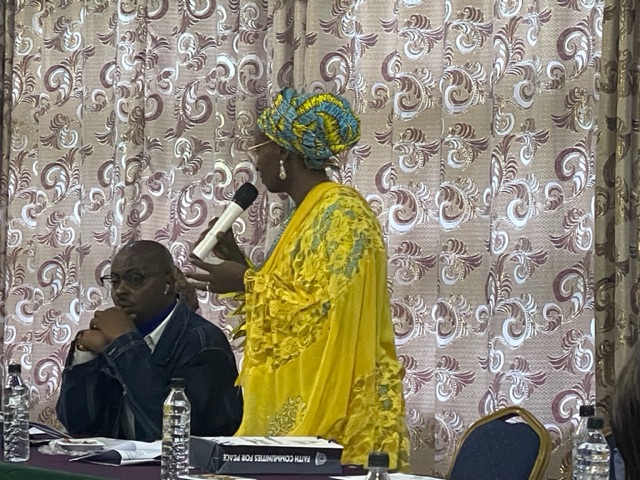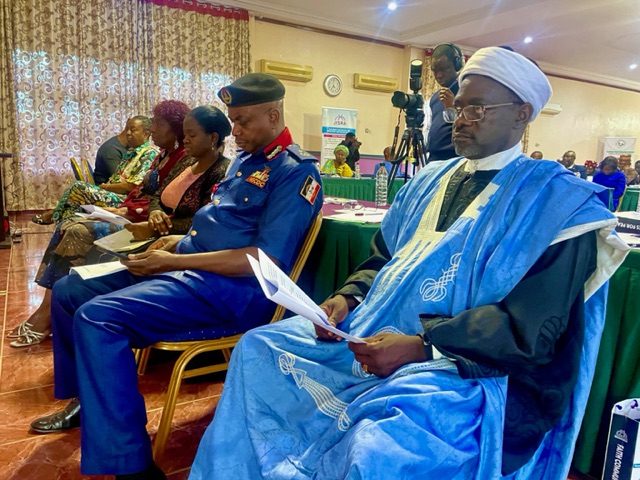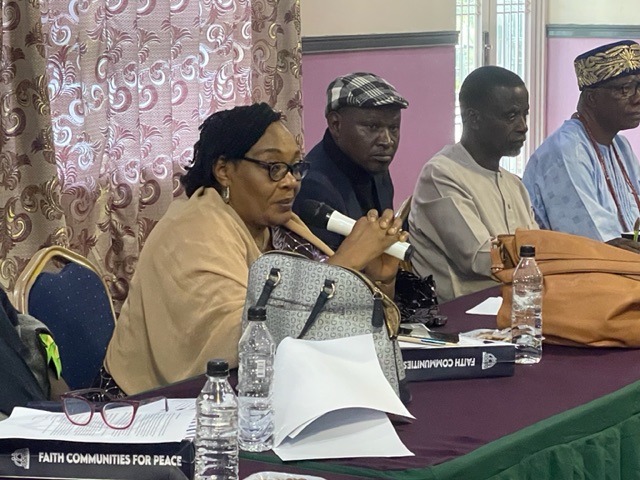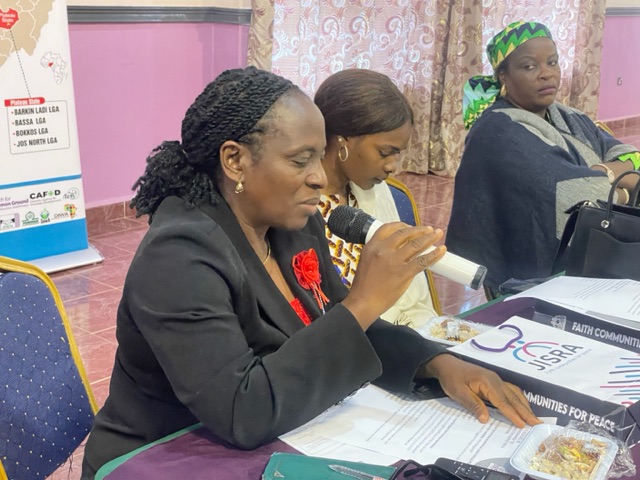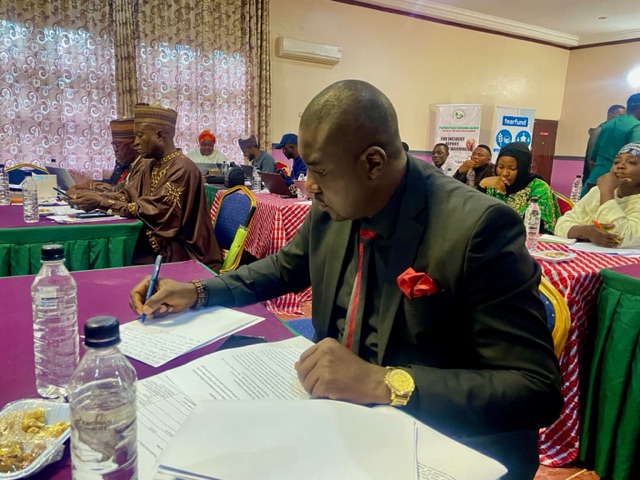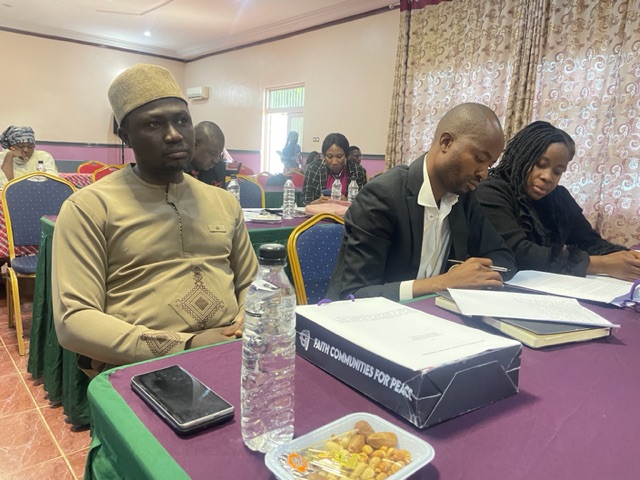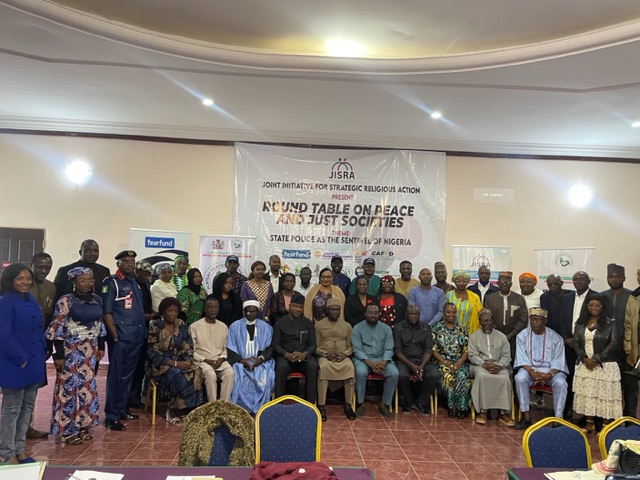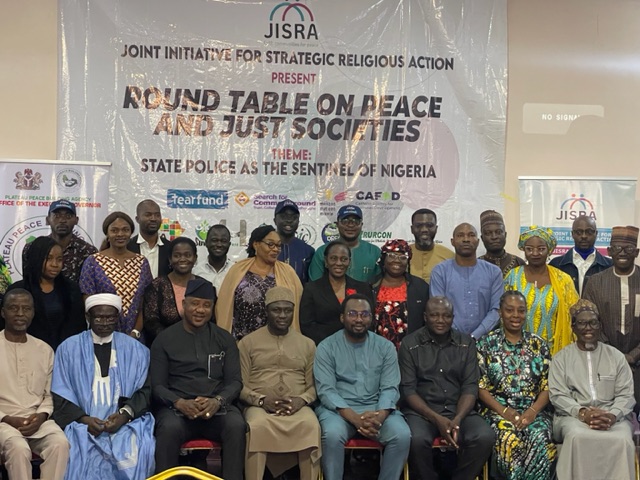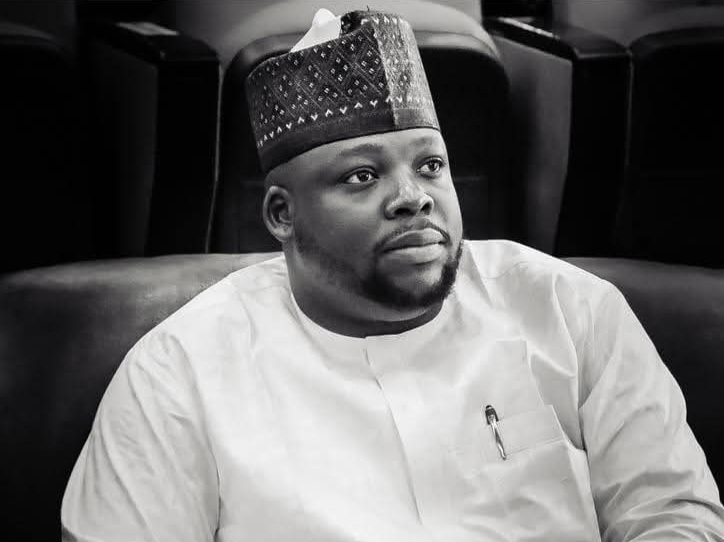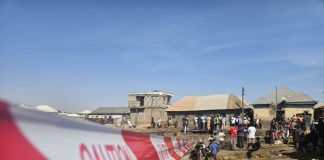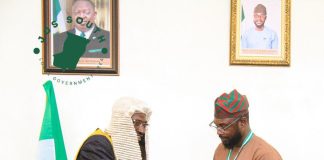The Joint Initiative for Strategic Religious Action (JISRA) Nigeria, in collaboration with Tearfund and the Plateau Peacebuilding Agency, hosted a crucial Round Table event titled “State Police as the Sentinel of Nigeria”.
The discussion was held at the Jos Business School on Tuesday, the 22nd July, 2024 which aimed to explore the crucial role of state policing in creating a safer and more progressive Nigeria.
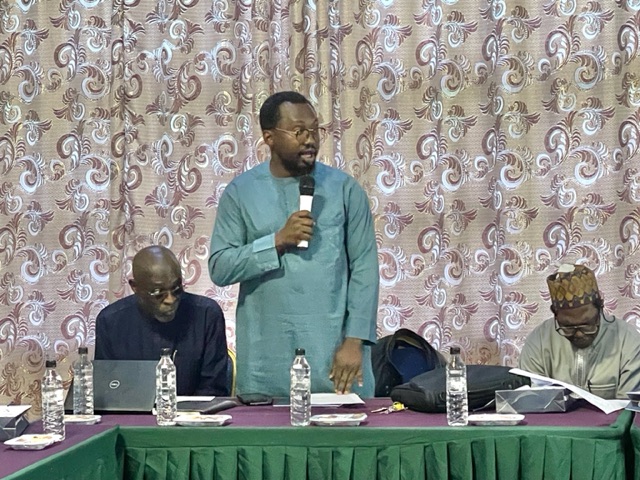
Mr. Jude Likita, the Country Coordinator for JISRA Nigeria, highlighted the unique opportunity presented by this discussion to explore the decentralized law enforcement system’s potential benefits. He emphasized the necessity of a more effective crime prevention strategy and improved community relations, particularly in conflict-prone areas affected by religious tensions. According to Likita, the round table was not just about adopting state police but about crafting a practical framework to address Nigeria’s unique security challenges.
The discussions focused on the need for actionable frameworks and policies for Nigeria’s state policing system. Likita emphasized the importance of effective implementation and urged stakeholders to see the discussion as the beginning of a comprehensive process.
Mr. Likita also emphasized the importance of collective action and dialogues for meaningful change following JISRA’s contributions to Nigeria’s policy, including submissions to the National Assembly Committee on the Constitution.

In His keynote address at the Round Table event, Professor Ezekiel Gaya Best discussed the effectiveness of state police in safeguarding peace in Plateau State, focusing on their implementation rather than their existence.
Prof. Best emphasized the need for a transparent, inclusive recruitment and training process for state police, ensuring effective community service, and promoting acceptance and cooperation by educating communities about their role and benefits.
Professor Best also addressed concerns about potential misuse of state police by governors for personal interests. He acknowledged these fears but urged stakeholders to explore the numerous advantages of a decentralized police force. He advocated for proactive measures to mitigate any risks, such as establishing clear guidelines and oversight mechanisms to prevent abuse of power.
Furthermore, Prof. Best stressed the need of understanding the local context and culture in creating an efficient state police system. He argued that adopting successful methods from other countries could be advantageous, but they should be tailored to Nigeria’s specific conditions. He feels that by encouraging collaboration and tackling these crucial concerns, state police can play an important role in ensuring peace and security in Plateau State.
Mr. Ben Osawe, the Advocacy Manager and Tearfund Head of Office in Jos, further discussed the importance of shielding state police forces from undue influences that could compromise their mandate. He emphasized the need for establishing robust safeguards to ensure that state police remain impartial and dedicated to their primary duty of maintaining peace and security.
Osawe suggested implementing independent oversight bodies that can monitor the activities and decisions of state police, thereby ensuring accountability and transparency.
Osawe also proposed legislative measures to clearly define the scope and limitations of state police powers, preventing any potential misuse by political figures or other external influences. By incorporating strict guidelines and ethical standards into the operational framework, he believes that state police can effectively fulfill their mandate without falling prey to partisan interests. These safeguards, coupled with community engagement and support, are essential for creating a trustworthy and effective state policing system in Plateau State.
Mr. IK Omoigiade, Regional Resilience and Conflict Advisor for Tearfund, discussed the need for just and impartial state police service commissions in Plateau State. He argued that the historical complexities of the commission, including recruitment power struggles, led to inefficiency and undermanned police forces.
Omoigiade proposed abolishing the commission and advocating for a decentralized approach, where local police heads are more familiar with their communities. This would reduce bureaucratic delays and political interferences, ensuring better protection against unjust events and attacks.
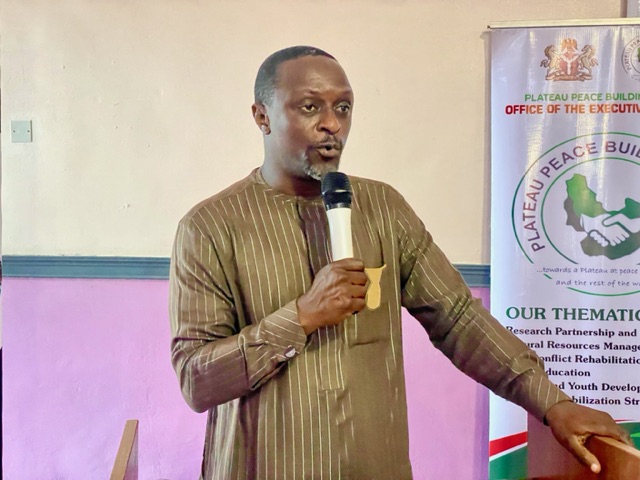
Mr. Kenneth Dakop, Strategic Communication officer of the Plateau Peace Building Agency discussed sustainable funding for state police, emphasizing the need for consistent pay and proper equipment. Stakeholders highlighted the importance of local governments, internal revenue, and community contributions. They also called for financial autonomy for local governments to allocate funds directly from federal subventions. A collective approach, including public, private, and community associations, is crucial for maintaining an effective and strike-free police force.
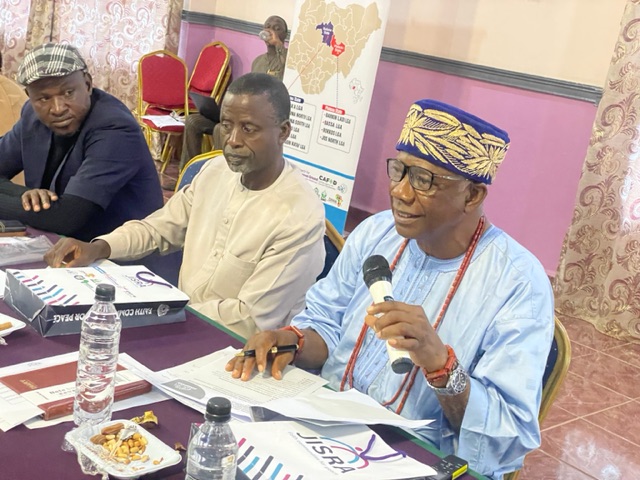
During the discussion, Prof. Nnamdi Aduba, a Professor of Law at the University of Jos, emphasized the crucial role of effective policing in fostering peace and security in Plateau State. He highlighted the need for sustainable funding mechanisms to ensure that the state police are adequately compensated and equipped, thereby preventing strikes and ensuring their efficiency.
Prof. Aduba advocated for a collaborative approach where the state’s Board of Internal Revenue, local governments, and community contributions collectively support the police force. He stressed the importance of financial autonomy for local governments, enabling direct allocation of funds from federal subventions to the state police, ensuring transparency and effectiveness in fund utilization.
Mr. Reuben Emmanuel Esq, representing JISRA’s Lobby Advocacy and Communications, highlighted the way forward beyond mere communiques. He stressed the importance of moving from conversation to action, involving all stakeholders in the strategic planning and implementation process. Mr. Emmanuel emphasized the necessity for continuous consultation with role-based stakeholders and the broader security community, aiming to create a comprehensive and effective State Police framework. He assured that all contributions would be safeguarded and incorporated, leading to a public presentation of the finalized strategies. He encouraged ongoing engagement and feedback to refine and validate the proposed solutions, ensuring they address the real needs and concerns of the community.
